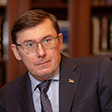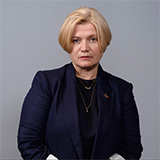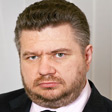Віртуальні відносини з Європейським Союзом
http://euobserver.com/opinion/119390
Opinion
Time to end EU-Ukraine pseudo-relations
13.03.13
By Taras Kuzio
BRUSSELS – In Ukraine, informal rules and norms of behaviour are respected much more than legislation and constitutions.
•
EU-Ukraine summit – an exercise in doublespeak (Photo: consilium.europa.eu)
1.
The term "doublethink" was coined by George Orwell to describe this act of simultaneously accepting two mutually contradictory beliefs and world views as correct; in the Ukrainian context this has translated into virtual policies.
Examples abound of Orwellian doublespeak.
Former president Leonid Kuchma issued decrees banning censorship and outlining measures to hold free elections and at the same time presided over the Soviet style censorship through "temnyky" (secret instruction sent to television channels) and massive election fraud that led to the Orange Revolution in 2004.
On 13 February 2013, Ukraine's prosecutor's office laid out murder charges against former PM Yuliya Tymoshenko on the same day the government issued this year's programme for EU integration.
Ten days after President Yanukovych was given his virtual "last red line" by the EU in Brussels Tymoshenko's lawyer, Serhiy Vlasenko, was stripped of his parliamentary mandate.
Soviet-era and post-Soviet virtuality – the gap between saying one thing in public and doing another in private – emerged and developed in the Joseph Stalin era and has deepened in the decades since.
Cynicism towards official documents, deceit and disbelief in Communist Party declarations have translated into legal nihilism in Ukraine.
But cynicism and doublespeak in Ukraine is compounded by an equally deep doublespeak in the EU and the two co-exist in an unstable but at the same time cosy virtual relationship.
The EU has long pretended that Ukraine is a "strategic partner" and continues to pretend it sees Ukraine as a future member.
The EU's doublespeak is reciprocated by President Yanukovych who – when Tymoshenko was in court awaiting her inevitable sentence (Ukrainian courts only find 0.17% of cases not guilty) – was demanding the EU include the offer of membership in the association agreement.
Added to this vacuous "strategic partnership" is the EU's equally virtual programme on fighting corruption.
Ukrainian and Eurasian oligarchs have long sent billions of dollars to EU member states and their offshore zones.
In the first two years of the Yanukovych administration the EU received a greater sum from Ukraine than the entire Ukrainian budget.
The ?610 million assistance offered to Yanukovych in Brussels is only a fraction of the amount Ukraine has sent to the EU and will have no influence on him. Cyprus, the biggest foreign investor in Ukraine, sees more Ukrainian capital come over to its shores than this in a routine year.
Ukrainian oligarchs Viktor Pinchuk and Rinat Akhmetov purchased the most expensive properties in British history in Kensington and Knightsbridge in the city they have fondly renamed Londongrad.
In addition to real estate, oligarchs send their children to private schools, they open offices and deposit large sums of money in Britain, France, Austria, Switzerland, Lichtenstein, Monaco and offshore zones such as the British Virgin Islands (a favourite destination), Belize, Seychelles and elsewhere.
Is it any wonder Yanukovych and other post-Soviet leaders are cynically disposed towards the EU when the EU itself fails to live up to its own values?
Three policies are required to break down this mutual virtuality.
Firstly, the EU should begin to undertake due diligence on Ukrainian and Eurasian capital in the same stringent manner as the US.
With corruption amok in Ukraine and corporate raiding massively on the increase, is it really possible that capital the EU receives from Ukrainian oligarchs is clean?
The first place to begin is in the highly opaque energy sector where the EU – unlike the US – has ignored massive corruption.
Secondly, the EU should stop speaking with many voices which provides a window of opportunity for mutual virtuality to flourish.
The EU, preferably with the US and Canada in a joint statement, should unambiguously spell out its first real "red line" that states there will be no association agreement unless a set of clear steps are undertaken.
Thirdly, failing this, the EU's should threaten a visa blacklist of senior Ukrainian officials from the President, government and ruling Party of Regions as well as allied oligarchs such as Akhmetov and gas tycoon Dmitri Firtash.
It is in the interests of the EU to stop playing the virtual game with President Yanukovych and his Orwellian administration.







